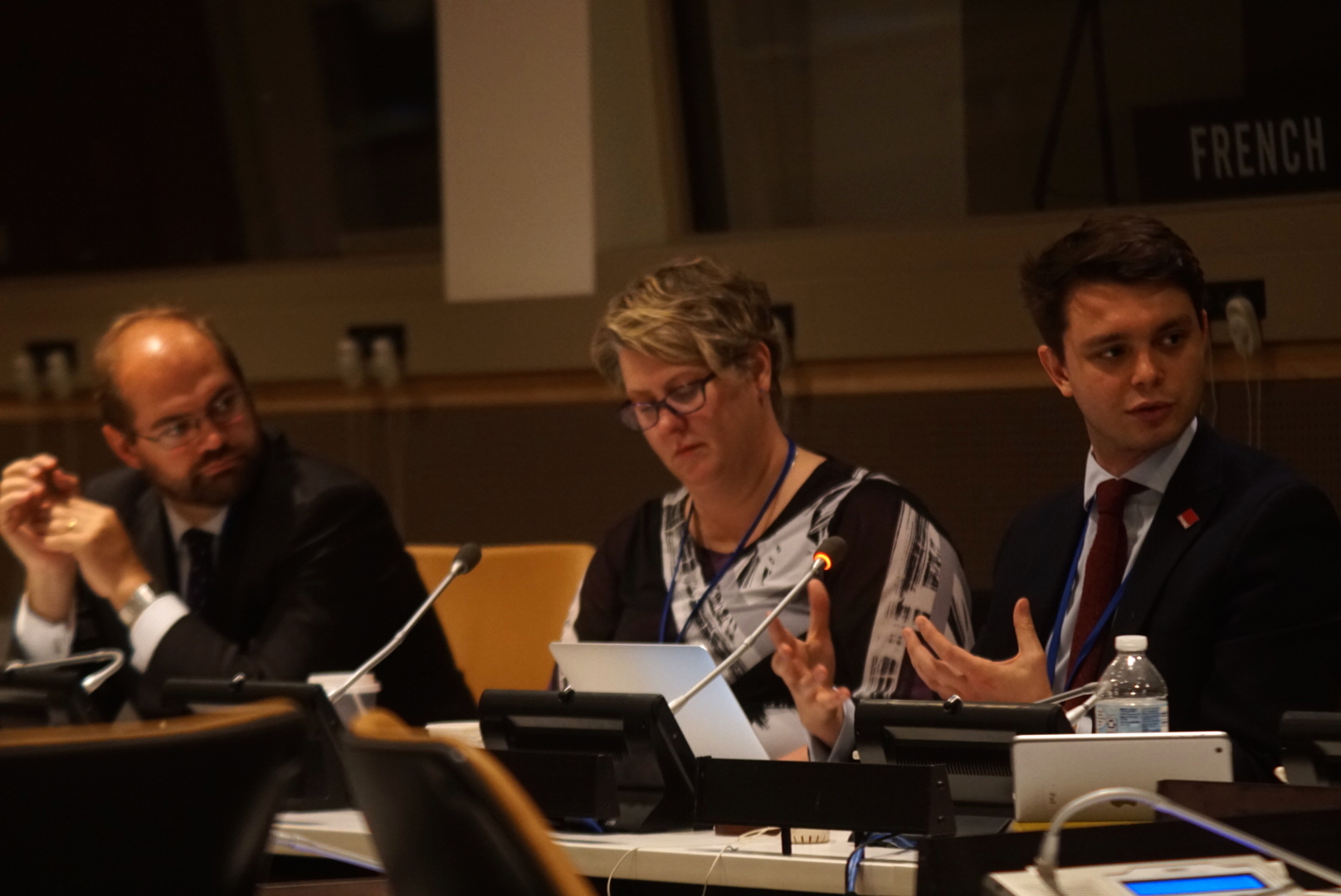What does a small team in London dedicated to shifting the debate on nuclear disarmament worldwide do? We collected together a small number of representative activities we conducted in one week in June 2019.
Stepping Stones
Sixteen states met in Stockholm on 11 June, most represented by their Foreign Ministers, to discuss a project that had been co-developed by BASIC and the Swedish Foreign Ministry over the previous 12 months. We had called the Stepping Stones Approach to Nuclear Disarmament. Swedish Foreign Minister, Margot Wallström, when chairing the meeting, talked of the need to ensure that commitments made in the context of the NPT were realised across all three pillars of the treaty (disarmament, non-proliferation and peaceful uses), and that this would require signals of intent and movement. Official delegates issued a declaration on the day calling for concrete, actionable moves to reinvigorate multilateral nuclear disarmament. Germany agreed to host the next Ministerial next February.
BASIC’s Executive Director, Paul Ingram, gave a talk on the approach to officials during the formal lunch, and answered questions. He met and talked with several of the Foreign Ministers attending the meeting, on a boat trip after the formal proceedings. Germany’s Foreign Minister had flown in from Tehran, and Japan’s Foreign Minister was joining Prime Minister Abe in Tehran the following day for the first Japanese delegation to Iran at that level for 40 years. In subsequent meetings with Swedish officials it became clear that their expectations had clearly been surpassed, and there was a sense that much of the international community was alive to the need and the possibility of progress. We talked optimistically about the next stages of the project and how to build upon the momentum. Paul’s blog on the events surrounding the ministerial is available here.
Drones, Swarming and the Future of Warfare
Back in London on June 12th, the All-Party Parliamentary Group (APPG) on Global Security and Non-Proliferation (serviced by BASIC), alongside the APPGs on Drones and Future Generations, hosted a Parliamentary event on Drones, Swarming and the Future of Warfare. Sebastian Brixey-Williams, BASIC’s Programme Director, was invited to address parliamentarians on the future implications of swarming naval drones for area denial and anti-submarine warfare. As the UK modernises its nuclear deterrent, which will continue sailing until the late 21st century, it is incumbent upon parliamentarians to consider the risks of future technology and ‘known-unknowns’ that may impact the UK’s confidence in the stealth and survivability of its strategic submarines across their lifetime. This meeting was attended by over 50 parliamentarians, governmental and independent experts, including a number of members of the parliamentary select committees and a former Defence Secretary.
Reducing Nuclear Risks: European Perspectives
BASIC published a new report Reducing Nuclear Risks: European Perspectives form the 2019 PrepCom. This report arises from a roundtable during the 2019 NPT PrepCom hosted in the Polish mission to the UN in New York, and with the support of the Dutch government. BASIC has been at the forefront of research into European and regional approaches to nuclear risk reduction. Looking ahead, BASIC will continue to work with European governments to build develop a shared European vision for risk reduction and build support for credible proposals that reduce the risk of nuclear escalation through misperception and miscalculation.
Nuclear Responsibilities
Encouraging a responsible approach to nuclear weapons is challenging when views are so polarised, but is particularly sensitive in India and Pakistan, where there is often a sense that much of the rest of the world is patronising in its approach. After months of negotiations BASIC formalised its agreement with the Centre for Air Power Studies in India on an agenda for discussion on nuclear responsibilities, and will cohost a roundtable event in December. This felt like a breakthrough, showing Indian willingness to join the emerging international discourse around nuclear responsibilities.
RUSI PONI summer conference
BASIC Research Assistant Sophie McCormack delivered a paper to the PONI summer conference on 13th June entitled, ‘British political understanding of the term nuclear deterrence’, with particular focus on the 2016 parliamentary debate. The topic is often overlooked, so encouraging new thinking about it was rewarding. The paper was well received and was a talking point throughout the day. Following the positive feedback I am waiting to hear if I am one of the individuals RUSI takes to the US PONI conference next year.

